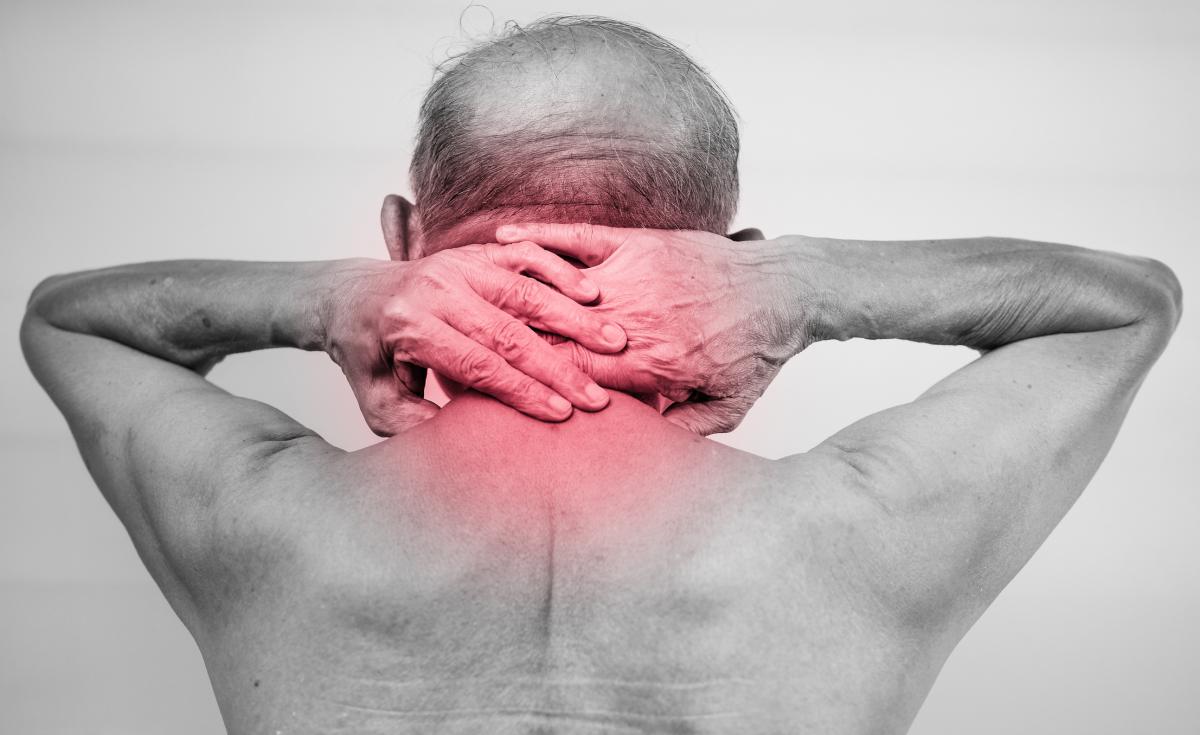Myositis
An uncommon disorder, myositis means inflammation of muscles you use to move. It's a form of myopathy, a disease of the muscles that causes problems with voluntary movements. These problems can range from stiffness to weakness, and they can be mild, moderate or severe. When inflammation causes myopathy, the condition is referred to as myositis.
What is myositis?
Myositis, or inflammatory myopathy, is not inherited. It's caused by the immune system attacking muscles. Sometimes the immune system also attacks the skin, blood vessels and connective tissue. Myositis is characterized by chronic muscle inflammation, muscle weakness and sometimes muscle pain. Researchers believe that 50,000 to 75,000 people live with myositis in the U.S.

What are the types of myositis?
The five main types of myositis are:
- Polymyositis: It's caused by the immune system attacking healthy muscle tissue. Muscle weakness on both sides of the body affects muscles closest to the body's core, like the neck, deltoid muscles in the arms and quadriceps in the legs. This weakness can lead to difficulty climbing stairs, getting up from a chair or even changing positions when lying down.
- Dermatomyositis: In addition to muscle inflammation there's inflammation in the skin leading to a rash. Dermatomyositis can occur on its own or may be seen in conjunction with other autoimmune diseases such as lupus.
- Inclusion body myositis: It affects men slightly more than women and typically appears after age 50. However, patients in their 30s and 40s have been diagnosed. This disease causes progressive muscle weakness and muscle atrophy but, in contrast to polymyositis and dermatomyositis, weakness is usually asymmetrical (affects one side of the body more than other) and shows a preference for muscle closing the hands and extending the knees. Also, unlike other forms of myositis, inclusion body myositis does not usually respond to medicines that suppress or alter the immune system. In fact, there is currently no proven effective treatment for this disorder.
- Juvenile myositis: Affecting children younger than 18, it's characterized by a pink-purple rash and weakness in the muscles closest to the body's core.
- Necrotizing autoimmune myopathy: “Necrosis” means death of the cells in an organ or tissue from disease, injury or problems with blood supply. This disease has symptoms similar to polymyositis. What sets the two diseases apart are the results of a muscle biopsy for necrotizing autoimmune myopathy, indicating muscle cell death and regeneration without significant inflammation. Necrotizing myopathy may develop from exposure to cholesterol-lowering medicines call statins. Less often this can occur in association with a cancer somewhere in the body.
What are the primary signs and symptoms of myositis?
You may experience:
- Difficulty getting up from a chair, climbing stairs or lifting your arms
- Falling
- Drop in blood pressure when shifting from a seated to standing position, known as orthostatic hypotension
- Difficulty swallowing or breathing
- Weakness affecting the muscles near the center of the body, including the muscles of the neck, shoulders and hips
- Loss of strength throughout the body
How is myositis diagnosed?
Your HonorHealth neurologist will diagnose myositis by using one or more of these tests:
- Blood tests measuring levels of muscle enzymes and antibodies directed against your own cells or organs (called auto-antibodies)
- An electromyogram measuring the electrical activity of muscles
- Magnetic resonance imaging to locate the best site for a biopsy to establish the diagnosis
- A muscle biopsy: This is considered the best way to establish the diagnosis. It may be conclusive if it shows unmistakable muscle inflammation. However, the results are not always conclusive, even in patients with myositis.
What are the causes and risk factors for myositis?
Causes and risk factors include:
- Certain medications, including statins (cholesterol-lowering drugs)
- Toxins
- Infections
- Cancer or other illness
- Thyroid and inherited diseases
- Autoimmune disease
Treatment options for myositis
Treatments include:
- Corticosteroid drugs, such as prednisone
- Intravenous immunoglobulin (antibodies that alter the immune system) to lessen the impact of inflammatory cells
- Other immunosuppressant medications
- Clinical trials. The HonorHealth Research Institute conducts clinical trials for neurologic conditions, including forms of myositis.